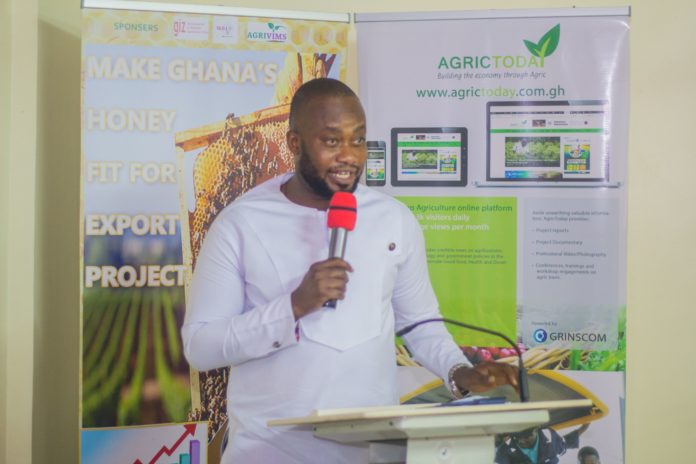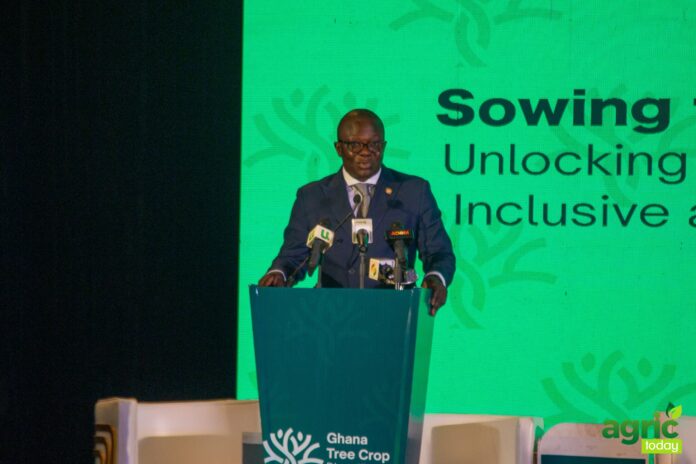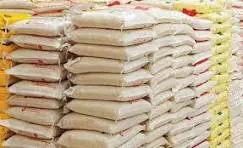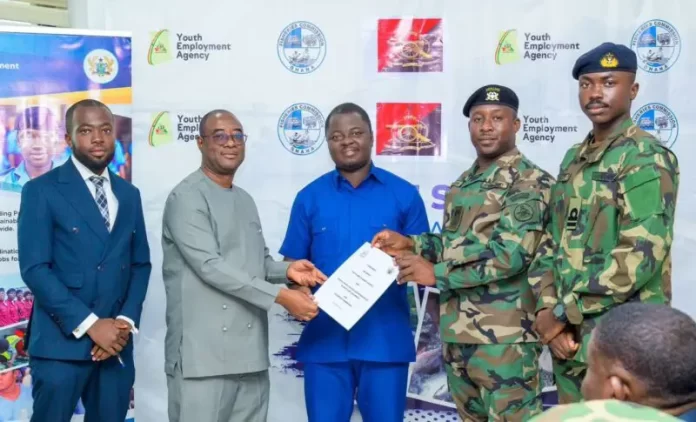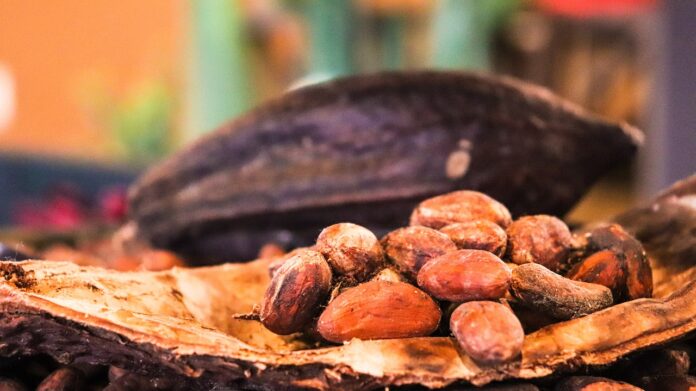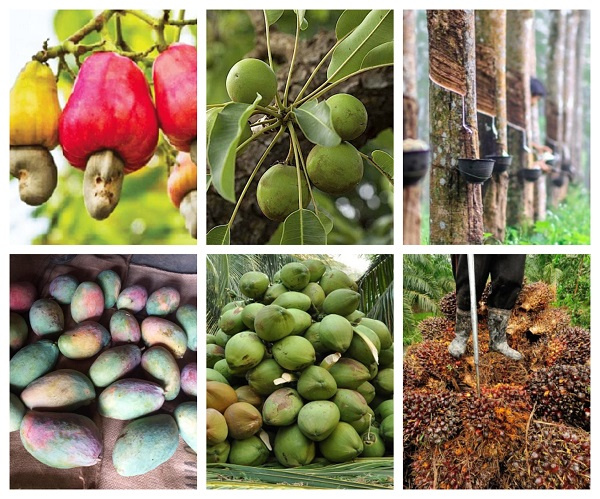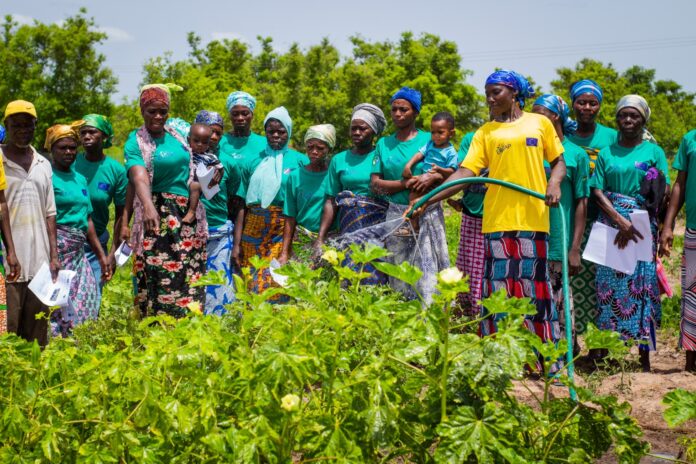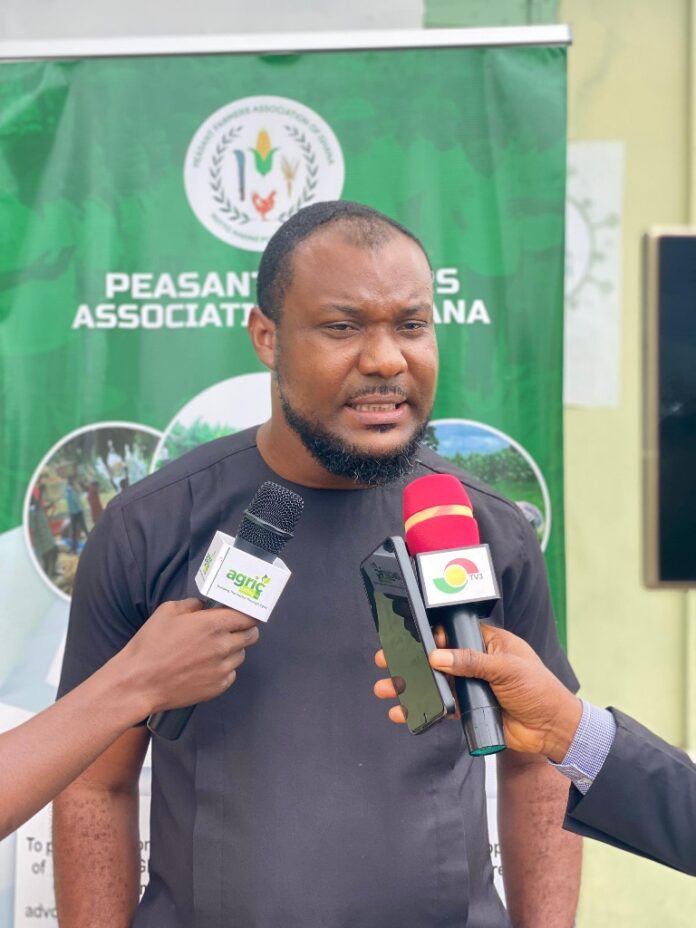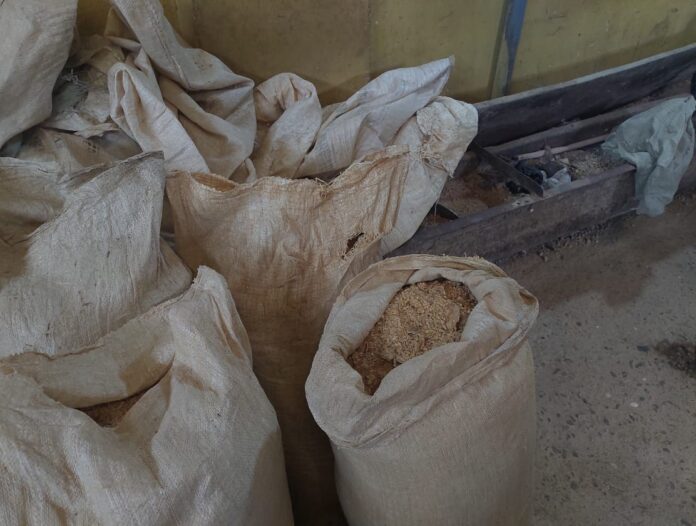The Chamber of Agribusiness Ghana has urged the government of Ghana to reconsider the silo project and engage stakeholders in a comprehensive review of the project’s cost, location, and design, as they believe that a more inclusive and sustainable approach to agricultural development will better serve Ghana’s food security needs.
The Chamber made this declaration in a statement dated November 17, 2024, and signed by the Chief Executive Officer of the Chamber of Agribusiness Ghana, Anthony Kofituo Morrison.
The Chief Executive Officer stated that the Chamber expressed disagreement with the government’s plan to construct a 60,000-tonne grain silo, as was announced by Agriculture Minister, Hon. Bryan Acheampong.
“While we appreciate the government’s efforts to address food security concerns, we believe that the project’s cost and location require urgent review. The Chamber is very concerned with the project cost, the $64 million price tag, considering the current economic climate and competing priorities for agricultural development. This amount could be re-aligned to allocate a portion to support farmers, improve irrigation systems, deploy post-harvest infrastructures, and enhance agricultural research”. Anthony Morrison said.
The Chamber’s research indicated that regions, such as the Brong-Ahafo, Ashanti, Volta, and Upper West Regions, are the primary hubs for maize and rice production.
” Investing in grain silos in these regions would yield greater economic benefits and have a more significant impact on the country’s food security”, Anthony Morrison stated highlighting that the current project’s location and a strategic reserve of this nature require careful consideration of accessibility, storage facilities, and transportation networks.
“We fear that a poorly chosen location could lead to inefficiencies and increased costs”. The Chamber Outlaid their fears.
The Chamber reiterated that analysis also reveals that the Eastern Region, particularly Kwahu is not a major grain-producing area in Ghana.
The region’s agricultural production primarily focuses on fruits, vegetables, cocoa, roots, and tubers rather than grains.
Expert’s research findings indicated that “Investing in grain storage infrastructure is crucial, but location and cost are critical factors to consider”.
Chamber of Agribusiness Ghana further gave some statistics on grain production in Ghana, highlighting that in 2023, Ghana produced 3.7 million tons of maize and the major producing regions were Brong-Ahafo (30%), Ashanti (20%), and Upper West (15%) and Average yield was 1.5-2.5 tons/ha.
On Rice Production in Ghana, 1.9 million tons of rice was produced in 2023, and the major producing regions were Volta (60%), Northern (20%), and Upper West (10%) and the Average yield was 2-3 tons/ha.
“As a Policy, technical, and trade advisory Chamber, we recommend exploring re-aligned solutions with strategic prioritization for utmost impact, instead of investing in a single, large-scale silo”. The Chamber highlighted.
The Chamber further reiterated that there are several experts and research findings out there that show that “Investing in grain storage infrastructure is crucial, but location, capacity, and cost are critical factors to consider.”
The decentralization of storage facilities across major production zones, Smaller, community-based storage units that reduce transportation costs and increase accessibility.
“Public-private partnerships and strategic collaborations that leverage private sector expertise and funding to improve agricultural infrastructure”. The CEO said.
The Chamber thereby urged the government to construct silos in major grain-producing regions, and also invest in irrigation infrastructure to increase grain production.
Also, the Government must enhance farmer capacity building and extension services.
The Chamber while proposing the above recommendations also emphasized the importance of stakeholder engagement in providing critical support for government initiatives.
A study by major Agriculture research organizations found that investing in grain storage infrastructure in major producing regions can reduce post-harvest losses by up to 30%.
The Chamber of Agribusiness Ghana believes that a more strategic approach to this project will ensure that Ghana’s agricultural sector receives the support it needs to thrive.
Again, the Chamber calls on the government to conduct a comprehensive feasibility study to determine the most suitable location for the grain silos.
Also, engage stakeholders, including farmers, traders, and agribusinesses, to ensure that the project aligns with the needs of the industry.
The government must explore public-private partnerships to reduce the financial burden and also prioritize investments in regions with high grain production potential.
The Chamber was alarmed that in 2022, Ghana’s rice imports were valued at $560 million, with major sources being Vietnam, Thailand, India, China, and Pakistan.
They gave the breakdown of Rice Import, stating that Ghana imported $349 million from Vietnam, $53.3 million from Thailand, $50.9 million from India, and China, and $21.7 million and $21.2 million from Pakistan.
The Chamber further indicated that Ghana imported 1.3 million tons of paddy rice in 2020, compared to 1 million tons produced locally.
The country spends between $300 million and $500 million annually on rice imports.
Ghana’s maize imports have varied over the years. In 2023, the country imported $13.4 million worth of maize, with the top trading partners being Argentina (58%), South Africa (19.1%), Brazil (8.7%), USA (6.83%), and India (3.82%).
Interestingly, Ghana also exports maize, albeit in smaller quantities. In 2023, the country exported $987,699 worth of maize, with Malawi being the largest recipient (96% of total exports)
The Chamber again gave the breakdown of Ghana’s maize imports, by country of origin, stating that the country imports 58% of maize, worth $7.8 million, from Argentina, South Africa 19.1% ($2.57 million), Brazil 8.7% ($1.16 million), USA 6.83% ($915 thousand) and India 3.82% ($512 thousand)
Additionally, Ghana’s maize imports have fluctuated over the years, with significant increases in 2012 ($37.8 million) and 2018 ($22.8 million).
The Chamber believes that a more strategic approach to this project will ensure that Ghana’s agricultural sector receives the support it needs to thrive.

